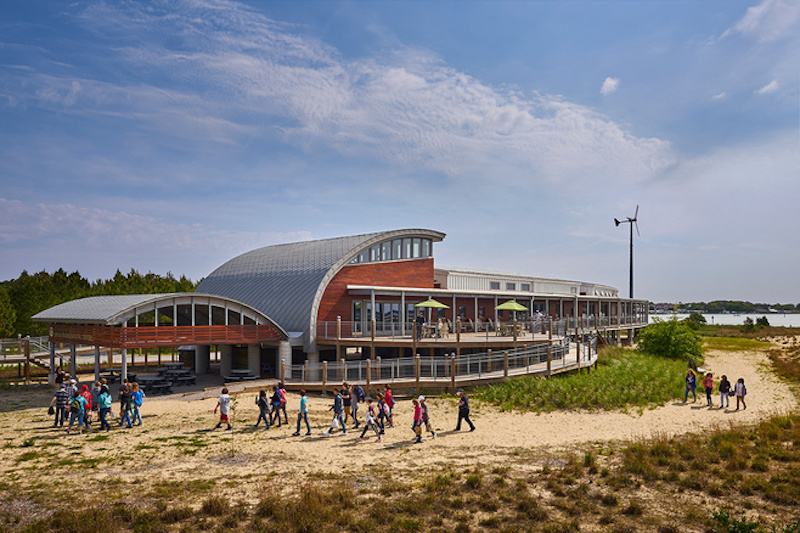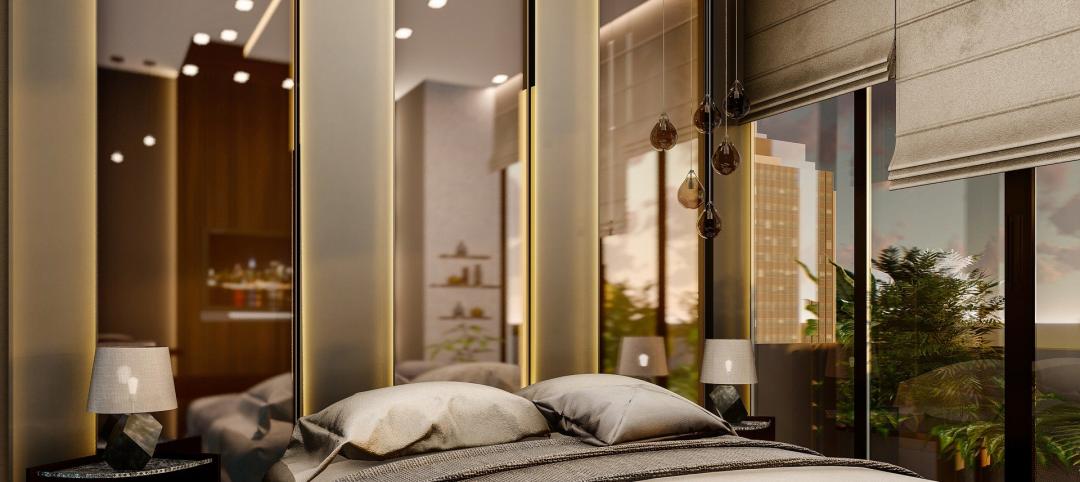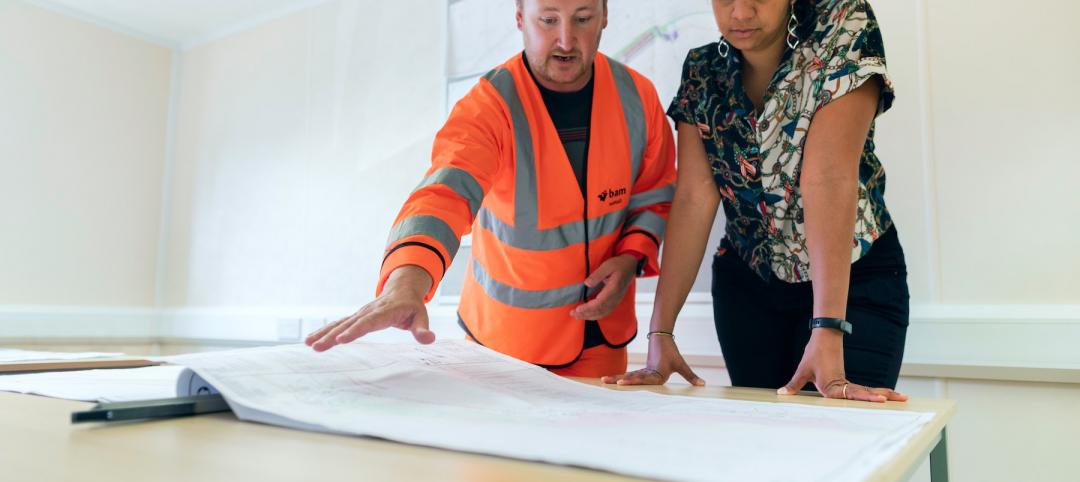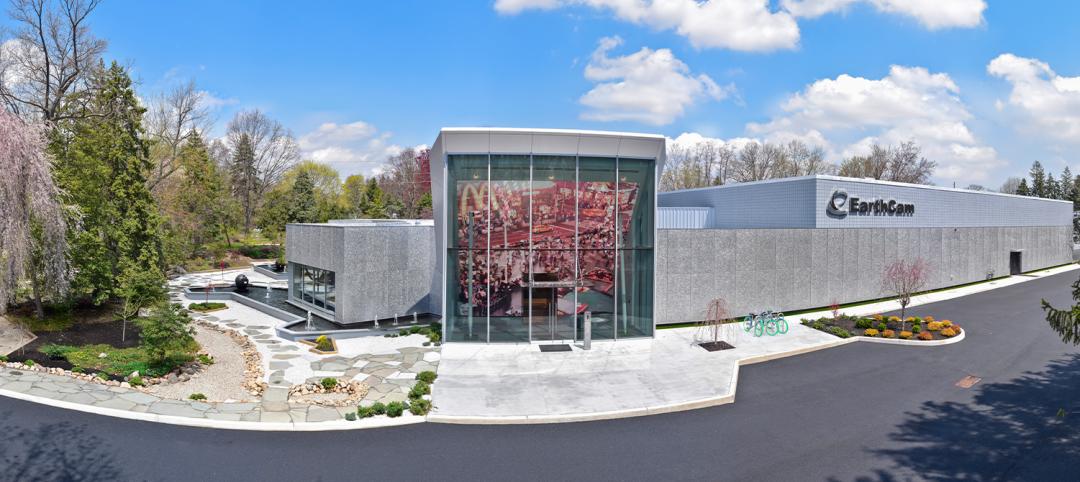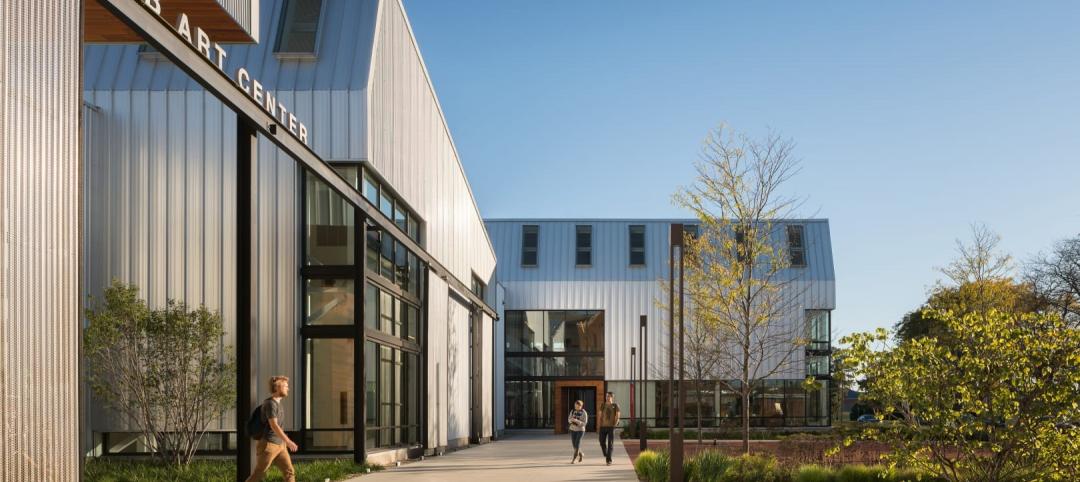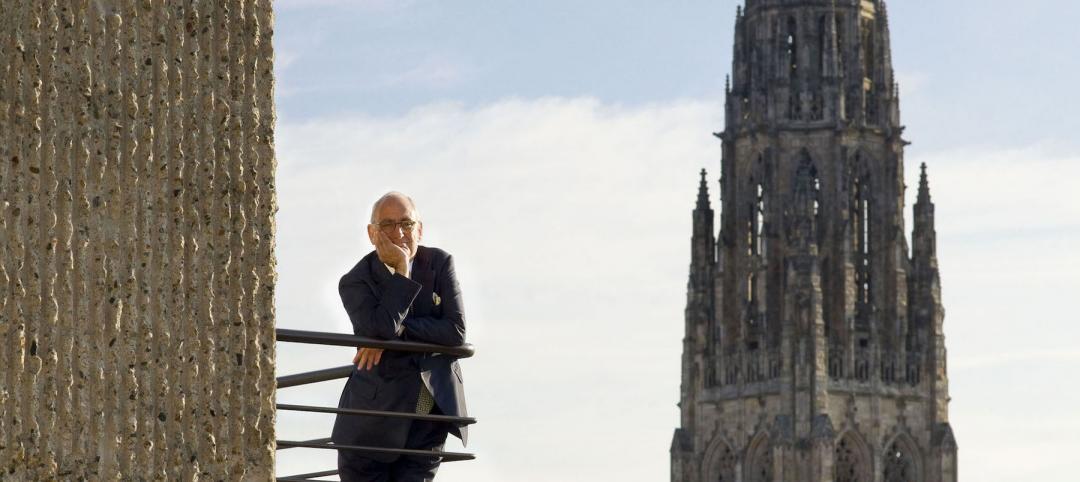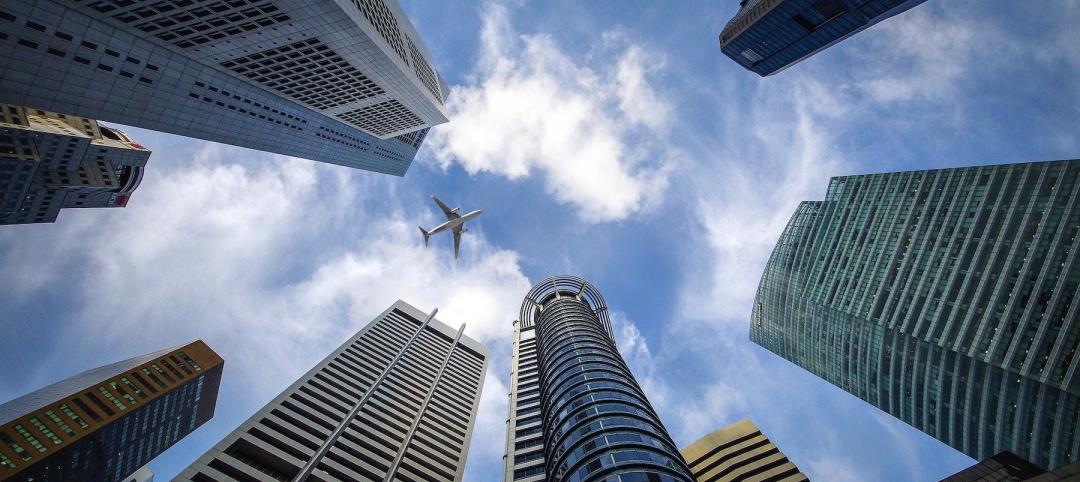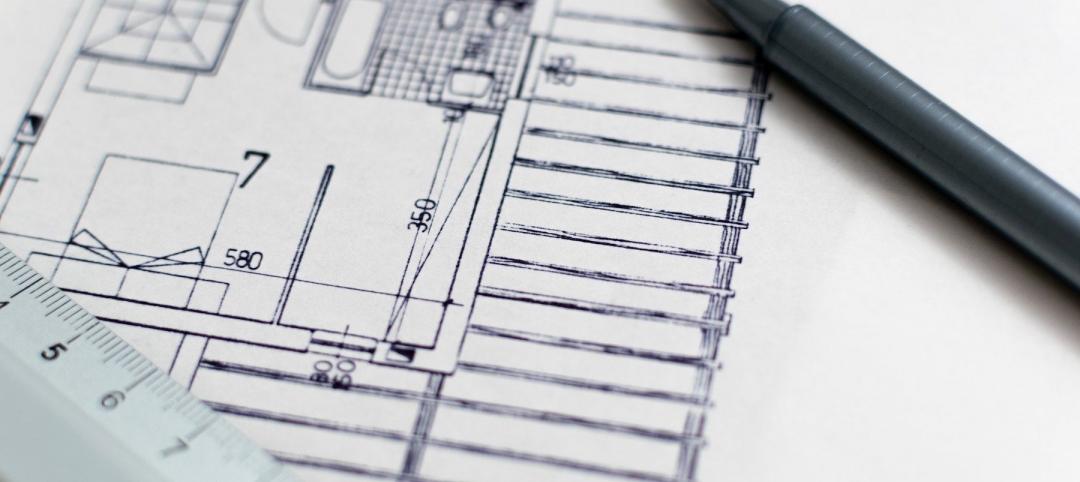The easiest and most cost-effective strategies in sustainable design—daylighting, optimal building orientation, a tight envelope, super-efficient HVAC systems, LED lighting—are taken for granted today. AEC leaders in green building are stepping up to a higher level of innovation.
TOP 130 GREEN BUILDING ARCHITECTURE FIRMS
Rank, Firm, 2015 Revenue
1. Gensler $768,470,000
2. Stantec $331,794,291
3. HOK $280,570,000
4. Perkins+Will $195,460,000
5. Skidmore, Owings & Merrill $175,140,374
6. HKS $163,696,602
7. EYP $137,479,466
8. SmithGroupJJR $122,636,361
9. CallisonRTKL $104,462,061
10. CannonDesign $69,400,000
TOP 90 GREEN BUILDING CONSTRUCTION FIRMS
Rank, Firm, 2015 Revenue
1. Turner Construction Co. $5,701,000,000
2. Clark Group $2,620,000,000
3. Hensel Phelps $2,286,280,000
4. Skanska USA $1,941,400,000
5. Swinerton Inc. $1,918,000,000
6. Gilbane Building Co. $1,746,261,000
7. Whiting-Turner Contracting Co., The $1,600,777,900
8. Suffolk Construction Co. $1,514,705,316
9. Structure Tone $1,460,800,000
10. Holder Construction Co. $1,335,000,000
TOP 60 GREEN BUILDING ENGINEERING FIRMS
Rank, Firm, 2015 Revenue
1. Jacobs $203,161,333
2. AECOM $200,900,000
3. Arup $168,783,060
4. Thornton Tomasetti $67,382,221
5. Syska Hennessy Group $32,420,857
6. Burns & McDonnell $24,341,832
7. Vanderweil Engineers $23,508,800
8. Smith Seckman Reid $20,189,000
9. DeSimone Consulting Engineers $19,799,641
10. Dewberry $19,159,460
GREEN GIANTS SPONSORED BY:
Some have created tools that aid designers’ ability to more precisely compare the projected energy performance of various design concepts, materials, and equipment choices. Designers can kick the tires on an array of options early in the design process.
Occupant wellness and comfort have also gained increasing prominence, especially since the signing of a partnership between the International WELL Building Institute and the U.S. Green Building Council in 2014. “If it doesn’t enhance the wellness of occupants, it’s not really sustainable,” says Mike Szabo, OAA, AIBC, Principal, Diamond Schmitt Architects.
To be a green leader today, you have to dig deeper into data. For Diamond Schmitt, existing energy models only go so far. “We have a diverse portfolio, and we don’t do prescriptive design,” Szabo says. To improve the quality of data for its project types, the firm, in collaboration with the engineering firm RWDI, developed a visual database with energy simulation models. The models take energy-load information from the firm’s portfolio and extrapolate predictive data that is used in the early stages of design.
“There are a series of filters—location, heating, process loads, etc.—so you can drill down beyond a single measure of energy usage per square meter,” Szabo says. “This allows us to ask the right questions about the core issues that make projects perform more efficiently.”
On a recent master-planning project for a mixed-use development, the tool helped the firm and the client choose from among three possible site configurations to find the best orientation for energy efficiency.
ZGF Architects has also found existing databases, such as Energy Star, lacking. The firm specializes in the design of hospitals, laboratories, and research facilities, all of which have higher-than-average energy loads. “The actual performance of these buildings is driven largely by the program,” says Associate Partner Vikram Sami, AIA, BEMP, LEED BD+C.
Using publicly available data from the Department of Energy, ASHRAE, and its own projects, ZGF developed an energy-load database for such project types. The data is stored on Microsoft Excel and maps to Revit. Designers filter the data according to the program of individual spaces—climate, equipment loads, and other factors—to get fairly reliable answers to what-if questions about energy demand and savings. ZGF’s Energy Programming Dashboard helps its designers obtain energy load information on individual pieces of equipment—pumps, heating units, lighting fixtures—which can then be combined to create the optimal aggregation of equipment.
on the wellness front
ZGF has teamed up with researchers at the University of Washington on Lark Spectral Lighting. The tool allows designers to use spectral data to define how the quality of light impacts not only a physical space, but also the occupants. The color and quality of light affect humans’ circadian rhythms, sleeping patterns, and alertness, which can impact employee productivity.
“The spectral content of light sources changes as the light bounces off of surfaces,” says ZGF Associate Ed Clark, LEED AP BD+C. The choice of materials and color schemes for ceilings, walls, floors, and furniture influences the quality of light. Darker colors absorb light; lighter colors are more reflective. The Lark tool (free download at: www.food4rhino.com/project/lark) provides a model that helps designers configure optimal combinations of lights and interior materials.
How architectural features impact wellness is an ever-growing competitive consideration for AEC firms that design and construct new office space. KSS Architects encountered this in its work for Burlington Stores.
The off-price retailer wanted its new headquarters in New Jersey to appeal to Millennials. KSS’s design encourages workers to get out of their chairs and move about the facility during the day. A large café has extensive indirect daylighting, bright colorscapes, and long, European-style tables. The space is busy throughout the workday, not just at mealtimes, notes Ed Klimek, AIA, NCARB, Partner, KSS Architects.
Small nooks outfitted with furniture are spread throughout the building. Outdoor seating is arranged on the north side of the structure. These features are tailored especially for the young professionals accustomed to working untethered from their desks. “The design was a response to an emerging generation of people with new expectations of what a workplace should be,” Klimek says.
Elevators are pushed to the side of a large, sweeping staircase to encourage employees to take the stairs. Spaces that foster physical activity—and add variability to workspaces, seating postures, and scenery—are believed to promote a healthier style of work.
The project included many LEED-blessed approaches, but the owner chose not to apply for certification. “It’s less about getting the plaque and more about how design can have a direct impact on sustainability, wellness, and saving money,” Klimek says. “It’s about looking for unique ways your project can address sustainability, not because they are cool, but because they matter.”
RETURN TO THE GIANTS 300 LANDING PAGE
Related Stories
Hotel Facilities | Apr 25, 2022
U.S. hotel construction pipeline up 2%, with 5,090 projects in the works
The total U.S. hotel construction pipeline stands at 5,090 projects and 606,302 rooms at the end of the first quarter of 2022, up 2% by projects, but down 3% by rooms, according to the Q1 2022 Construction Pipeline Trend Report for the United States from Lodging Econometrics (LE).
Codes and Standards | Apr 25, 2022
Supply chain constraints, shifting consumer demands adding cost pressures to office fit-outs
Cushman & Wakefield’s 2022 Americas Office Fit-Out Cost Guide found supply chain constraints and shifting consumer demands will continue to add pressure to costs, both in materials and labor.
Sports and Recreational Facilities | Apr 25, 2022
Iowa's Field of Dreams to get boutique hotel, new baseball fields
A decade ago, Go the Distance Baseball formed to preserve the Iowa farm site where the 1989 movie Field of Dreams was filmed.
Building Team | Apr 22, 2022
EarthCam Adds Senior Leadership Roles to Facilitate Rapid Growth
EarthCam today announced several new leadership positions as it scales up to accommodate increasing demand for its webcam technology and services.
Architects | Apr 22, 2022
Top 10 green building projects for 2022
The American Institute of Architects' Committee on the Environment (COTE) has announced its COTE Top Ten Awards for significant achievements in advancing climate action.
Mixed-Use | Apr 22, 2022
San Francisco replaces a waterfront parking lot with a new neighborhood
A parking lot on San Francisco’s waterfront is transforming into Mission Rock—a new neighborhood featuring rental units, offices, parks, open spaces, retail, and parking.
Legislation | Apr 21, 2022
NIMBYism in the Sunbelt stymies new apartment development
Population growth in Sunbelt metro areas is driving demand for new apartment development, but resistance is growing against these projects.
Architects | Apr 21, 2022
A conversation with architect Robert A.M. Stern
The architect Robert A.M. Stern discusses his newly published memoir that touches on his childhood in New York and 50-plus-year career.
Building Team | Apr 20, 2022
White House works with state, local governments to bolster building performance standards
The former head of the U.S. Green Building Council says the Biden Administration’s formation of the National Building Performance Standards Coalition is a “tremendous” step in the right direction to raise building performance standards in the U.S.
Market Data | Apr 20, 2022
Pace of demand for design services rapidly accelerates
Demand for design services in March expanded sharply from February according to a new report today from The American Institute of Architects (AIA).


